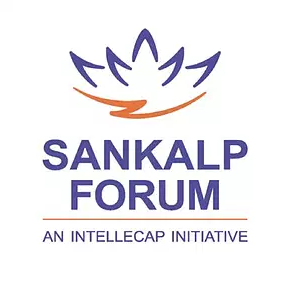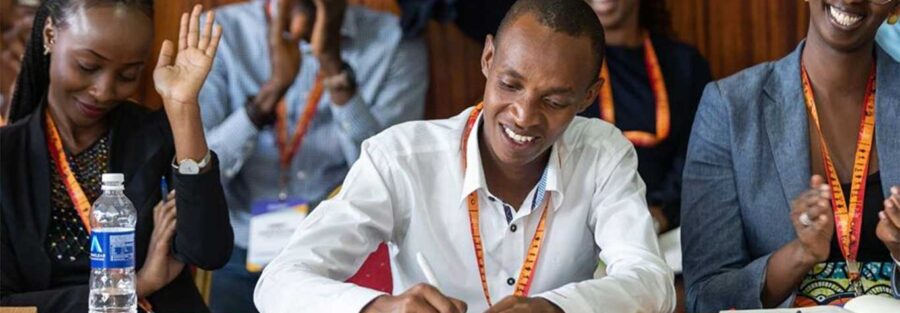At the #SankalpAfrica2020 Summit in Nairobi, I had the honour to present our findings from our work on ecosystem building in Kigali, Kampala and Guatemala, together with my colleague @David Ross, Africa Angel and Distinguished Professor of IT Entrepreneurship at CMU Africa.
Ecosystem Building means Working Together There is wide acceptance now that the performance of new entrepreneurial ventures is strongly impacted by something much larger than the business itself: the surrounding ecosystem. A good entrepreneurial ecosystem allows entrepreneurs to quickly find required knowledge and resources throughout all the stages of growth and development. For this, people and resources must be connected and work together. Indeed, several reports on ecosystem building have highlighted that network connectivity among ecosystem actors is one of the most important contributors to a strong ecosystem. Already in 2018, Startup Genome mentioned in their global report that strengthening a sense of community and building local relationships are what ecosystem builders should care about most.
Interventions often foster more fragmentation rather than break down silos We found that early stage ecosystems are often characterized by a strong degree of fragmentation. Part of this fragmentation stems from the fact that most support actors are relatively new and still try to navigate what their role is. On the other hand, however, we found that this fragmentation is further incentivized by how projects are designed. Most actors depend on subsidies (donor or government support) which has led to a situation in which support organizations see (international) donors as their main customers and not necessary the entrepreneurs.
Why is breaking down silos so hard?
-
ESO very often are “start-ups” themselves. They have started operations in the last 1-5 years, and rely on grants to cover their bills
-
Current intervention designs incentive ESO to offer all thing to all people to maximize grants (favour incumbents) instead of encouraging specialization
-
Decision on what type of intervention is needed are often head quarter driven and made without market proof
-
There are hardly any KPI’s beyond individual life-span of partner program so ESO often act in a way to please the donor (ensuring future grants) and not necessary to achieve largest impact
4 ideas to become more entrepreneur-centric In an interactive session with representatives from USAID, DFID, SDC, Vitol Foundation, Irish Aid, Siemens Foundations, British High Commission, Transnational Business Network (TBN), IFC, Rwanda Development Board and several local ESO and entrepreneurs, we brainstormed on alternative options and possible solutions to ensure support services are developed in an entrepreneur-way. Here are four great ideas that jumped out to us: Longer term project: We need to move our thinking from project cycle management to business cycle management. This means planning with longer term projects (more than 3 years), working more closely with corporate and get the private sector involved in the ecosystem. Open ended RFPs: Donors/foundations can foster co-creation of solutions with local actors by leaving the Request for Proposals (RFP) more open. This will ensure focusing on real market needs and avoid projects being driven by HQ KPIs. Actively seek local solutions: Take more time when designing the project, sit down with business service providers to figure out what needs to be offered (gaps) and how. KPI unification: Donors decide and agree on a set of common KPIs that every project shall track and which go beyond the life-span of individual projects.
What did we miss? Do you have ideas on how we can foster specialisation and collaboration among ecosystem players and make sure entrepreneurial ecosystems become more entrepreneur-centric? Please let us know by commenting on this article or emailing me at beny.meier@swisscontact.org
Author: Benjamin Meier, Project Manager – CSSC Swisscontact, Switzerland




